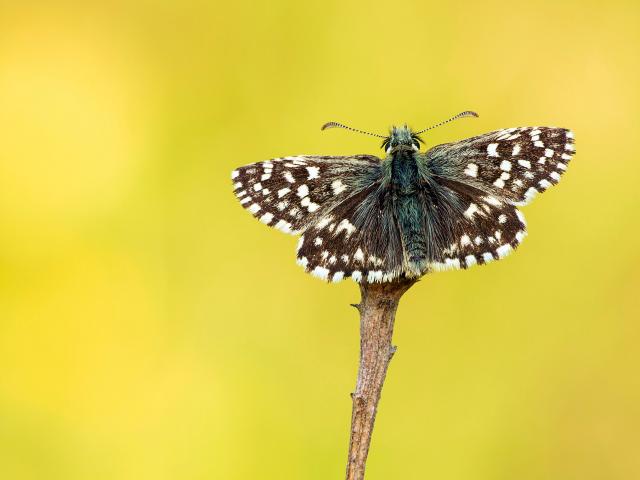
A new three-year conservation project, which aims to reverse the declines of specific species of butterfly and moth in the Midlands area, has been announced by wildlife charity Butterfly Conservation in partnership with Severn Trent.
The project, titled Butterfly Mosaics, will form part of Severn Trent’s Great Big Nature Boost – a scheme that aims to look after water by looking after nature too.
The partnership will focus on developing the habitats of eight target butterfly species in areas across the region, working with local authorities, landowners and other organisations, creating knock-on positive effects for local communities and biodiversity as a whole.
The project will work across over 60 sites across the Midlands (excluding Herefordshire and Lincolnshire) and include the creation of scrapes (removing topsoil) and scallops (indentations in woodland ridges), butterfly banks, scrub and tree removal as well as the planting of larval foodplants. Project delivery will also depend upon work by dedicated volunteers including three Butterfly Conservation area Branches, West Midlands, East Midlands and Warwickshire.
Rhona Goddard, Regional Conservation Manager for the West Midlands at Butterfly Conservation said: “We’re incredibly excited to announce this partnership with Severn Trent and are eager to get started with helping to reverse the declines of so many important butterfly species in this area. As well as being fantastic creatures in their own right, butterflies are also powerful indicators of the health of our environment. So, by investing in this conservation work, we will be benefitting wider local biodiversity too.
“Thank you to Severn Trent and to our incredible force of conservation volunteers across the region who are enthusiastic to get started. We will especially look forward to measuring how populations start to flourish in spring next year, once the works are well underway.”
Butterfly Mosaics will protect and enhance populations of rare butterfly species across the Midlands area namely the Grizzled Skipper, Dingy Skipper, Wood White, Grayling, Pearl-Bordered Fritillary, Small Blue, Brown Hairstreak and Small Pearl-Bordered Fritillary. Other butterfly species also likely to benefit from management works include Silver-studded Blue, Green Hairstreak, Small Heath and White-letter Hairstreak.

High priority moth species will benefit from the project too, including Drab Looper, Welsh Clearwing and Narrow-bordered Bee Hawk-moth.
Zara Frankton, Senior Biodiversity Coordinator at Severn Trent, said: “This is an exciting conservation project which we’re proud to support through our Great Big Nature Boost scheme. Our partnership with Butterfly Conservation is a really important one because we share the same ambitions to look after nature, which means looking after water too."
Zara added: "This project is the perfect example of how we're trying to lead the way in green recovery and help the Midlands to build back better, as we continue to re- emerge from the pandemic."


